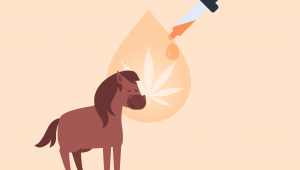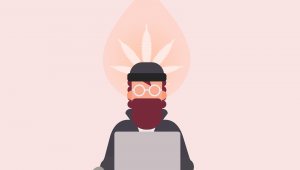For centuries, cannabis played a significant role in Chinese culture. Today, China is covering half of the world’s hemp production as a “global hemp superpower.”
CBD is exposed to strict rules in China, and you can only buy CBD cosmetics in local stores. However, there’s a break in the clouds for people looking to use CBD as health supplements. The Chinese government is moving towards friendlier laws, which might open the doors for new brands and products to enter the market.
In this guide, we’ll take a brief look at the cannabis history in China, we’ll break down the current laws and take a peek into the near future of CBD in China. We’ll also share some tips on how to buy high-quality CBD, and how to shop for CBD online from foreign countries once it becomes legal.
There’s a lot of content to cover, so let’s get started.
Summary: Buying CBD in China
- CBD is not on the list of narcotic drugs, but only cosmetics are available publically at this time
- Only hemp products made from approved Chinese companies are allowed for the time being for Chinese citizens
- Cultivation of hemp with less than 0.3% THC is allowed in some provinces (Yunnan, Heilongjiang, and Jilin)
- Companies that want to extract CBD from hemp must apply for approval and comply with the legal requirements
- Technically, companies are allowed to use CBD in scientific research and development of CBD products but only CBD cosmetics are legal for sale
- The CBD extract used in cosmetics is extracted from hemp leaves and not the flowers
- Chinese companies are working on developing new pharmaceuticals and products — which means the cannabis industry is booming, but it’ll take two to three years before everything is set

A Brief History of Cannabis Laws in China
Most of Asia — including China — has an extensive history of using both marijuana & hemp.
Although Japan has some of the oldest historical records of cannabis (8000 BCE), various archaeological findings show that China is the homeland of hemp — having used the crop since the Neolithic Age (5000 BCE). Excavation findings indicate hemp was used for clothing, rope, and medicine in China for thousands of years.
During China’s development as a kingdom with its many dynasties, hemp was not just a commodity but a necessity.
Besides its frequent use for clothing and rope, hemp was used for warfare — it was n important material for bowstrings. With its flexibility and durability, hemp was the perfect source for high-quality fiber, and Chinese warriors had an advantage on the battlefield thanks to this.
Hemp was also a popular material for papermaking and later, for medicine. Chinese healers used both hemp and marijuana as anesthetics and as a cure for menstrual cramps, rheumatism, malaria, constipation and upset stomach.
Cannabis — both hemp and marijuana — was a multipurpose plant used by Chinese people for hundreds of centuries. This relationship with cannabis would change in the modern era, thanks to international relations demanding cooperation among nations (including the control of drugs). Cannabis became the main target of restrictive regulations.
After more than 5000 years of active use, China banned cannabis in 1985, signing the United Nations’ Convention on Psychotropic Substances.
Today, marijuana remains illegal, but the country grows hemp in three provinces and is maintaining its position as a leader in the global hemp market.
Before we jump to the current laws governing CBD and hemp in China — let’s take a closer look at the regulatory classifications of cannabis, and why it’s crucial to differentiate the two plants from a legal standpoint in China.

What Is The Difference Between Marijuana & Hemp?
Hemp and marijuana are often treated as the same plant. They’re both members of the Cannabis sativa species — but there are some fundamental differences between these two plants that allow one to be considered legal, and the other a restricted drug.
Cannabis has over 100 different cannabinoids, but the most studied are THC (tetrahydrocannabinol) and CBD (cannabidiol). The main difference between hemp and marijuana is the amount of THC they produce.
Hemp plants naturally produce very little THC — and therefore lack any of the psychoactive effects of marijuana. As a result, many regulators have decided to exclude hemp from the list of restricted drugs because no matter how much you take, you’ll never get high from it.
Marijuana, on the other hand, produces THC in concentrations that can get users high.
In China, any Cannabis sativa plant that produces less than 0.3% THC is considered hemp — and therefore listed under a different classification than the narcotic marijuana strains. Most CBD oils in China are made from hemp plants.
Marijuana remains strictly regulated in China. If caught in possession of marijuana, you could be sentenced to 10 to 15 days of detention and 2000 yuan (~ $145).
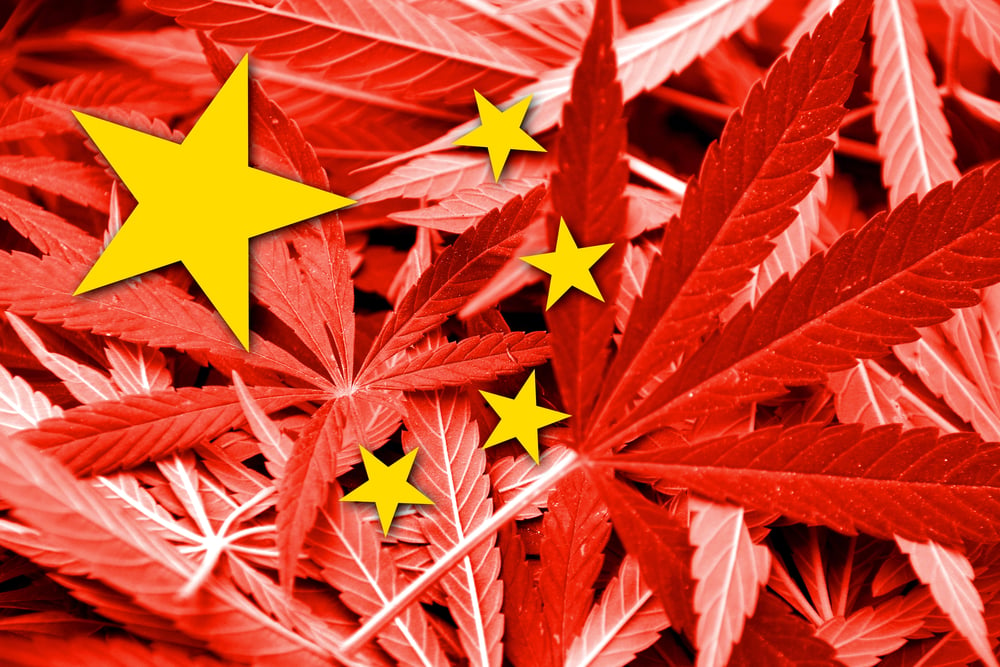
Is CBD Legal in China?
Although China is known for its strict regulations, the country’s longstanding cannabis tradition and the rising CBD trend around the world motivated the Chinese government to lay new groundwork for hemp’s reintroduction.
Three Chinese provinces are permitted to cultivate hemp:
- Yunnan
- Heilongjiang
- Jilin
You won’t find CBD concentrates, oils, capsules, vape juices on the Chinese market. However, many Chinese companies have started research that aims to develop new CBD products and pharmaceuticals for the general public.
If you’re looking to get ahold of CBD products for internal use, you’ll have to wait until CBD becomes fully legalized in China — the industry will likely have to go through several phases before it’s entirely regulated
As a non-psychoactive compound, CBD is not on the list of controlled drugs, but the regulations around its use are still restrictive, and only a handful of companies are permitted to produce it.
Although CBD is not a controlled drug, it’s also not listed in the Inventory of Existing Cosmetic Ingredients in China (IECIC), and currently, CBD is not allowed as a raw material in products.
However, it’s only a matter of time before CBD extracted from flowers will become permitted in cosmetics in China — several companies have received pre-approval for producing CBD from flowers.
Hemp leaves contain only small amounts of CBD, while hemp flowers have high concentrations of CBD. The cannabinoids delivered from hemp flowers are much more potent than those extracted from the leaves, and that’s why most companies use flowers to extract CBD.
NOTE: CBD in medicine and food is strictly prohibited in China — don’t import any illegal products.
For now, CBD remains popular in the wellness and beauty sector, and its application in other products (edibles, beverages, and oils) is yet to come to China.
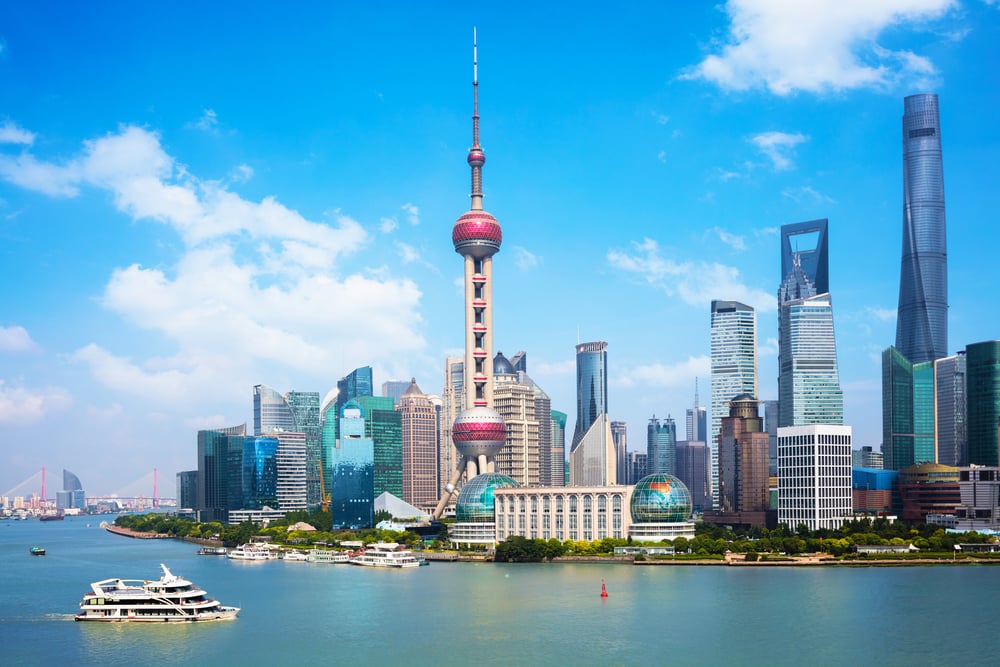
Is CBD Legal in Hong Kong?
The laws on cannabis in Hong Kong are tight. Both marijuana and hemp are illegal, and THC is a prohibited substance.
However, hemp-derived CBD is entirely legal in Hong Kong as long as it’s 100% free from THC. The authorities are transparent and have set a clear limit between what’s legal and illegal.
You’re allowed to purchase only CBD isolate products and broad-spectrum CBD. When you’re ordering online, always check the labeling of the product and ask the seller if their products are THC-free.
The authorities frown upon anything related to THC, and they would punish you severely if you purchase or import an illegal product.
If you get caught in possession of cannabis or cannabis-based products that contains THC, you could end up serving a seven-year-long prison sentence. The regulations are as serious as they sound, and that’s the number one reason why you should shop with extreme caution in Hong Kong.
Another thing the food safety authority has warned Hong Kong’s citizens about is beverages and foods. They have asked buyers to be especially careful when shopping for CBD-infused edibles and drinks due to possible traces of THC. The food authority claims that although technology has advanced, it’s very difficult to remove all THC from such products and that you should be aware of the risk.
Also, you’re not allowed to shop for CBD that contains health claims unless it’s registered as a pharmaceutical product under the Pharmacy and Poisons Board of the Department of Health.
If you’re buying CBD in Hong Kong, it‘s best to shop from reputable brands that sell products produced for markets with stricter rules.
These brands invest in improving and adjusting their products to customer needs, and they work with ethics, meaning they wouldn’t sell you a CBD product that’s prohibited in your country.
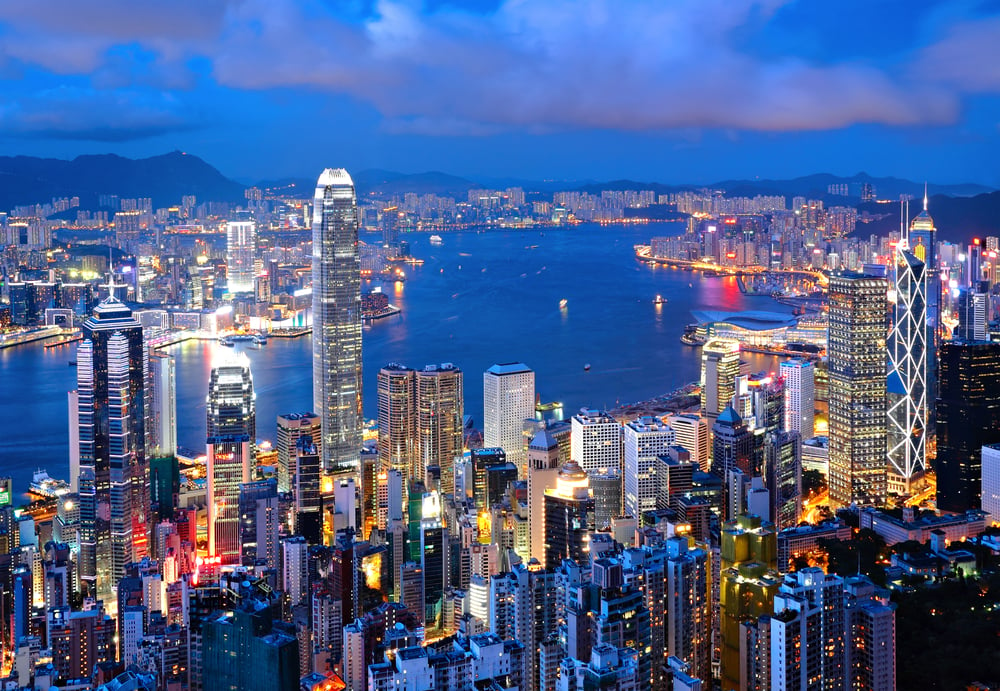
How to Buy CBD Products in China (Legally)
If you live in China, you can shop for various CBD cosmetics and wellness products, including serums, sunscreen, and creams. You need to be very careful what you order — only CBD cosmetics made from hemp extracts (not isolated THC), and products with less than 0.3% THC are permitted in China. These products need to be from Chinese sources (you can’t order hemp products from overseas yet).
However, China’s hemp industry is growing quickly, and companies are competing in the gold rush — two Chinese regions (Heilongjiang and Yunnan) are leaders in hemp production for CBD.
Despite the current stringent laws, it’s expected that CBD will become the key point of the Chinese cannabis industry, which will make space for more CBD-based products.
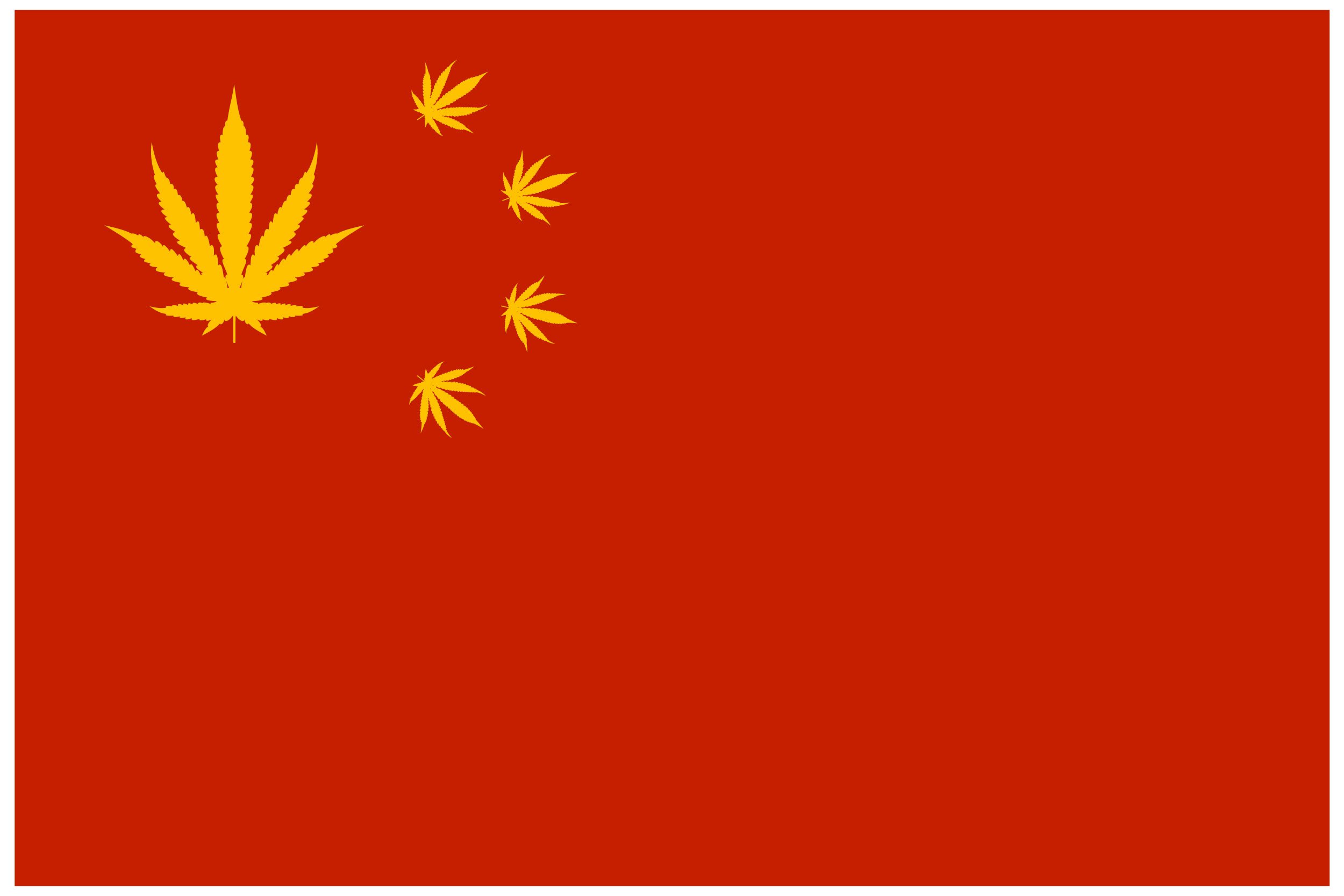
When Will I Be Able to Buy CBD Online In China?
CBD is a mainstream product available for millions of people in the West, but it’s still restricted in China — including a strict ban on its import. We know this is frustrating, but be patient and avoid ordering CBD online for the time being.
The government will likely allow CBD import soon, so why put yourself at risk?
IMPORTANT: The import ban applies to all CBD products — including cosmetics. Importing any CBD wellness or beauty product can only lead to trouble. Customs can seize your package upon arrival, so it’s best to refrain from making online orders before the regulations change.
The development of the Chinese CBD market and the reshaping of the law seem to go hand-in-hand — this will come with both pros and cons.
You’ll likely be able to buy more CBD products, but you may need to shop from foreign countries online (which is not a bad option at all) because it’ll take time before the domestic market is launched.
Even if you shop for CBD online (once it becomes legal), you can still bump into various obstacles — mostly technical and some law-related. For instance, some brands may avoid shipping CBD to countries with strict laws, but don’t worry — there is a way to get around this with mail forwarding services.
We’ll clarify how mail forwarding works once we share some tips on how to buy CBD products in China — these will help you understand what makes CBD a high-quality product, and how to find them on the crammed market.
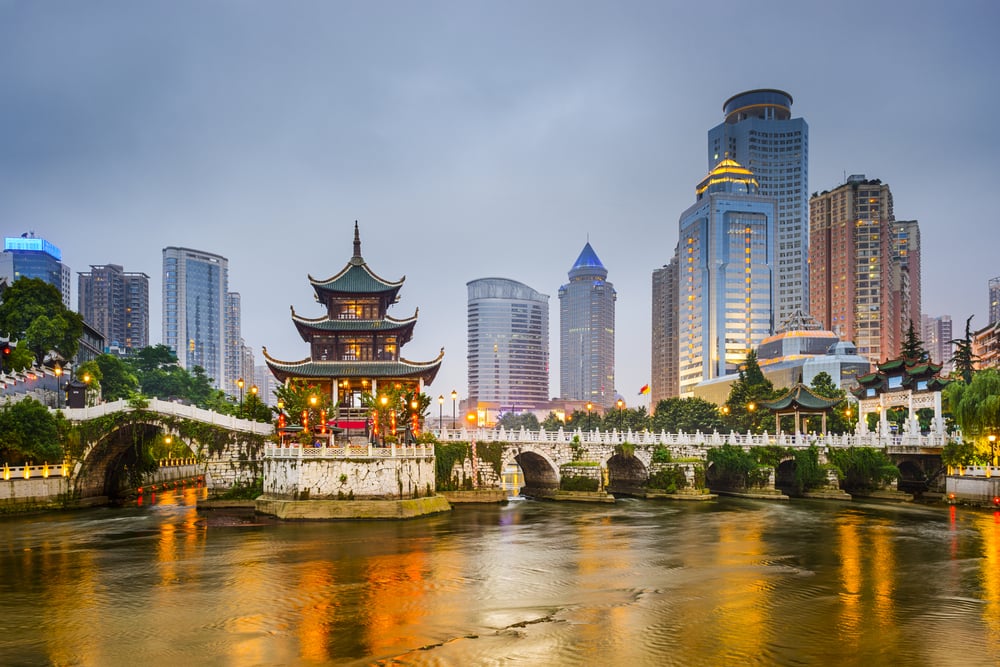
Tips on Buying High-Quality CBD Products in China
Shopping is fun, but marketing can be deceiving — we’ve all spent money on something that didn’t live up to the hype.
When shopping for CBD — especially in a market with strict rules and limited options — it’s important to differentiate between top-notch products and products of low quality.
Here we’ll discuss how to vet a CBD product before you buy it to ensure you don’t waste your money.
1. Shop Only From Reputable Brands
This has nothing to do with prestige — it’s just a kind reminder that you should take care of your health and your hard-earned money. Reputable brands build their success with their customers’ trust, and they wouldn’t risk losing loyalty by selling you a low-quality or unsafe CBD. They also take their work very seriously and invest a lot in research projects aiming to improve their CBD products.
2. Look For Evidence of Third-Party Labs Testing
Responsible companies produce only high-quality CBD that is tested by a third-party lab before they place it on the market. As the name suggests, this outside lab is not affiliated with the company, so it’s supposed to produce non-biased test results about the quality of the product.
Before marking a purchase, have a look at the product’s Certificate of Analysis. These are the test results from the third-party lab on the product’s CBD potency, cannabinoid profile, and contaminant report.
3. Shop Only for CBD Cosmetics With Hemp Leaf Extract
2021 is expected to become the year of legal changes and new CBD products on the shelves for Chinese customers. However, the old laws still apply to CBD in China, and you shouldn’t buy any CBD product that’s not allowed.
Always look for topical CBD products made from hemp leaf, that contain 0.3% THC or less.
If the product you’re looking at doesn’t check all three of these boxes, it’s probably illegal.
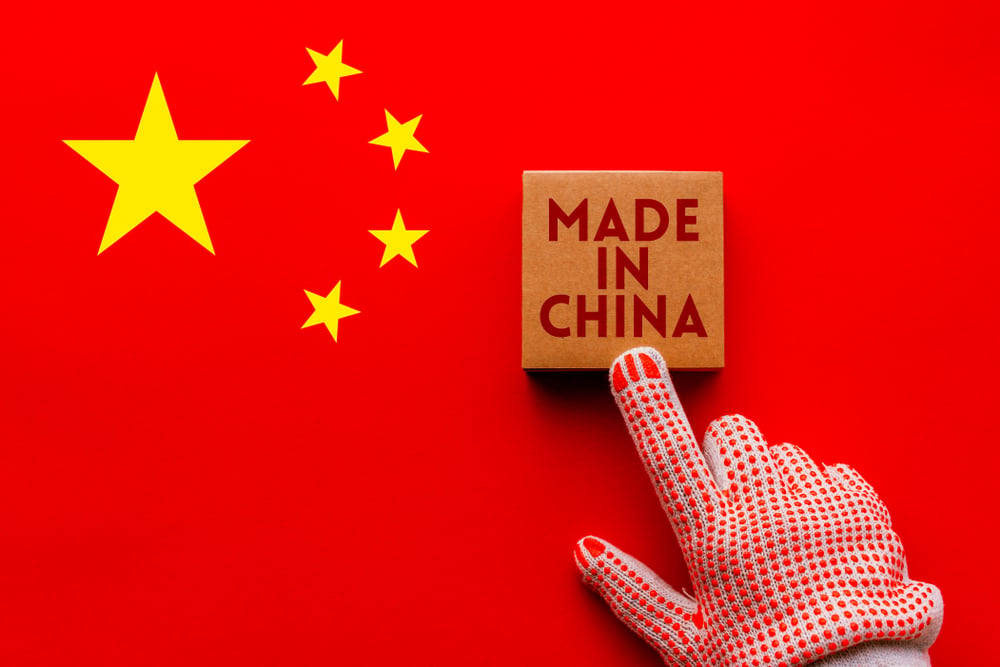
How Mail Forwarding Works
We mentioned before that once the government allows a broader range of CBD products and their import, you’ll be able to shop for CBD in foreign countries.
However, many brands won’t ship to China due to the country’s strict importation rules. This is where mail forwarding comes in — it’s a service that helps you buy CBD (or any other product) from a foreign country that doesn’t offer shipping to your region.
It works by providing you an address to order your product with and redirects the package to your home address.
Here’s how you would shop with a mail forwarding service.
1. Register an Account
When you sign up, the mail forwarding company will give you an address that you’ll use to place online orders. The address is often a US or Europe (UK) based — it all depends on where the company you’re shopping from is based.
If you’re buying CBD in North America, we recommend Shipito — they’ll give you a shipping address in the US. If you prefer to choose CBD from Europe’s abundant market, you can use Skypax’s services and get a UK address.
Mail forwarding services aren’t free — but don’t worry, the fees are reasonable.
2. Order the CBD Products You Want
Place your online order, and enter the address you were provided with as the shipping destination. Your package will be sent to this address, and once it arrives at the mail forwarding company’s warehouse, the staff will change the stamps and redirect the parcel to your home address.
Both Skypax and Shipito offer concierge service where they’ll do the shopping for you — at 10% fee and $8.50 fee + 4.3% processing + 8% commission, respectively.
If you want to know how much it’ll cost you to use a mail forwarding service, here are Skypax’s fees:
Skypax Mail Forwarding Rates:
| Membership | Registration fee | Annual membership fee | Average shipping costs |
| Standard Membership (If you only claim the service from time to time) | £ 12.00 set up ($ 15.00) | No | £ 30.00 ($ 36.00) |
| Premium Membership (If you order CBD frequently and want protection for your packages) | £ 0.00 | £ 90.00 ($ 110.00) | £ 30.00 ($ 36.00) |
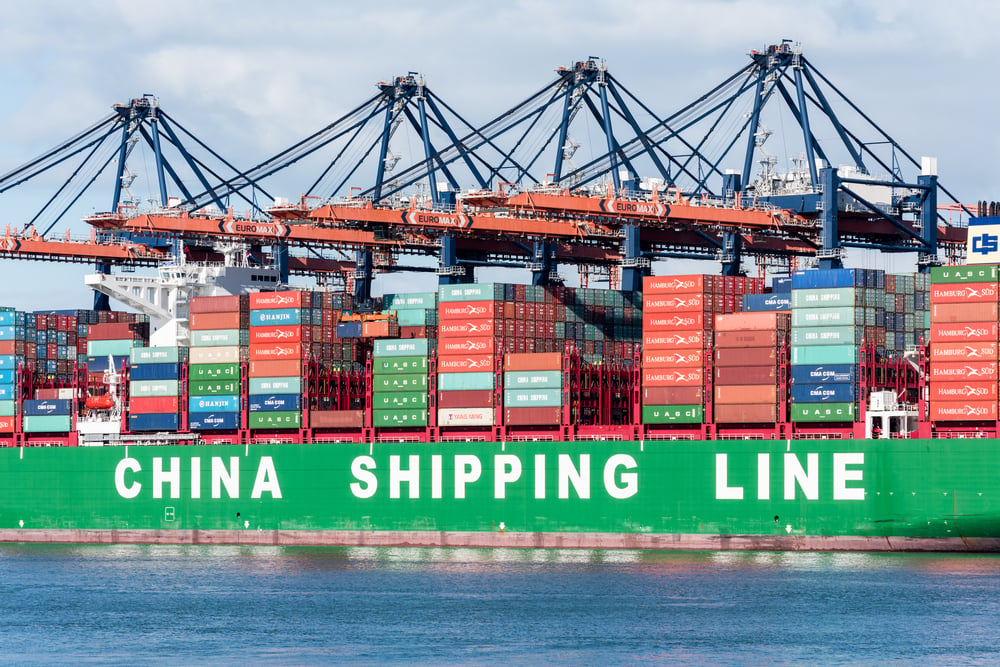
CBD Brands That Operate in China
Currently, we don’t know what CBD brands will operate in China in 2022, but Yooya — an e-commerce marketing platform — will soon introduce brands that sell CBD products. Its focus will be companies that produce and sell CBD-infused beauty and wellness products.
Once we find out what brands will be the first ones to hit the Chinese CBD market, we’ll let you know. Sign up to our newsletter below to receive news and updates to the Chinese rules and regulations surrounding CBD and hemp products.
Final Thoughts on Buying CBD in China
Unlike Europe and North America, China is still in the process of eliminating the negative cultural stigma around CBD. However, the country’s efforts to run with the entrepreneurs in the CBD industry are not to be underestimated; on the contrary — it deserves all the praise.
As a buyer, you can indulge in wellness and beauty products with small amounts of CBD, but we expect 2022 to be the year of a booming CBD market in China. Many brands are getting ready to place their CBD-infused products — this time with much higher CBD potencies.
Another thing we hope to witness soon are legal CBD imports. Once this happens, you’ll be able to discover the abundant CBD products from the US, Canada, and the UK.
Stay patient — we’ll update you as soon as the world’s CBD market becomes open for you!

